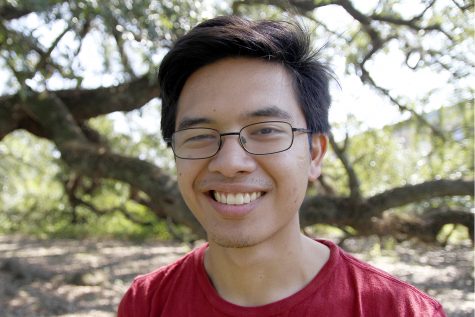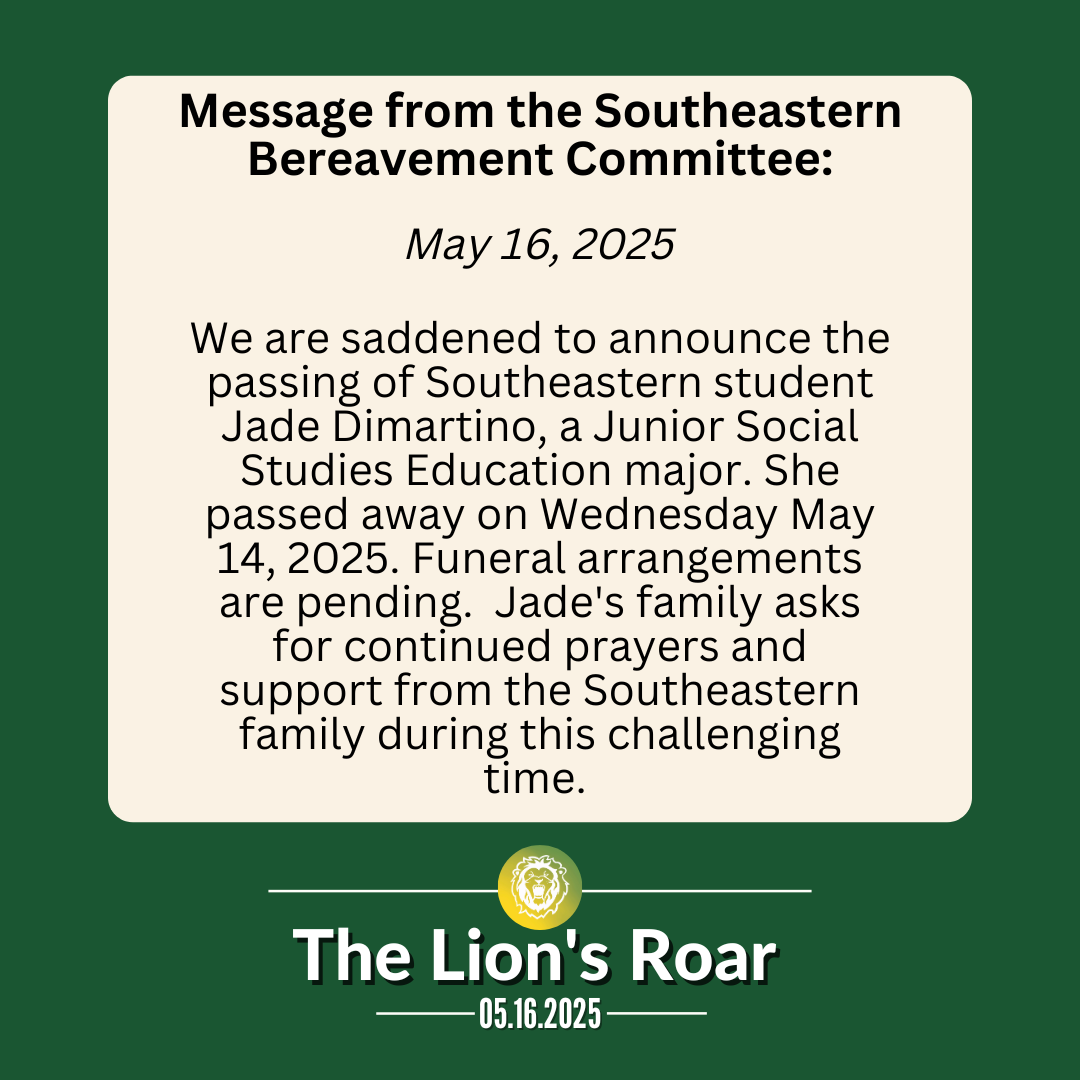
Associate Professors of Management and Business Administration Dr. Mario Krenn and Dr. André Honorée discuss the work for their research, which was published in the Journal of International Business and Economy. Their research examined how culture affects the relationship between firm performance and employee downsizing. Zachary Araki/The Lion’s Roar
Associate Professors of Management and Business Administration Dr. André Honorée and Dr. Mario Krenn studied the relationship between firm performance and employee downsizing in various cultures.
The research culminated in the publication of “Firm Performance and Employee Downsizing: The Moderating Role of National Culture” in the Journal of International Business and Economy in December 2017.
Krenn said, “This one observation that you make, especially here in the United States, is when firms perform and suffer, when firms perform and go south, the immediate reaction is, ‘OK, we have to also correct for that in our workforce,’ and immediately downsize although there would be many other strategies that firms could pick or pursue. They could restructure in a different way. Maybe they could outsource assets.”
Honorée and Krenn tested the research by analyzing data gathered on 1,747 firms across 35 countries, from South Africa to Ireland and Mexico to Israel among others.
“Is the relationship also the same in other countries?” said Krenn. “And, yes, we found that other countries pursue this kind of strategy. So, this relationship holds, but the strength of relationships still varies.”
To Krenn, cultural sensitivity is an important application of the research findings.
“What works in one context here in the United States might not be as smooth in another context,” said Krenn. “So, what works here in terms of employee downsizing, response to firm performance declines, what goes here easily and smoothly might run into big obstacles elsewhere.”
The literature review part of the process, finding out what has been done before in the field, showed Honorée and Krenn the unique value of their research.
“Either you’re doing something brand new or you’re building upon previous work, finding something hasn’t been done, doing things a little bit differently, and what you’ll find in literature review is there’s some things out there,” said Honorée. “There’s not a lot, and so I think that was very exciting for us to be doing something that really hasn’t been done, relating the Hofstede framework, which is a cultural framework, is being tied to everything.”
Among the relationships tested, was the impact of power distance, or the extent to which individuals accept the distribution of power in society.
“We hypothesize that if you had a very stark, a very high power distance, there’s a big difference between me and you, then I would have no problem getting rid of you because I don’t think of you as my equal,” said Honorée. “I would think of you as a person almost. You’re an employee. It’s easier to get rid of lower employees. That was our thought process, testing things that made sense to us.”
Honorée and Krenn also tested the impact of uncertainty avoidance, offering Japan as an example of a high degree of uncertainty avoidance.
“It’s not uncommon in Japan in economic downturn that the companies’ CEOs would take a pay cut rather than lay people off because people expect that,” said Honorée. “They expect to be taken care of, and you give up something for that. Nothing comes for free.”
Honorée found “rejection, waiting and having patience” to be the most challenging aspect of the process.
“We all want to know the answer now, and you have to be patient,” said Honorée. “Like we said, we worked on this, fleshed it out. It was sent to another place. It was a mixed decision. Reviewers and the editor made a decision that it wasn’t enough for that journal, so you deal with the rejection. You put a lot of effort and time and hopes, and when it doesn’t work out, then we have to start all over again.”
Honorée believes that his and Krenn’s skill sets work well together.
“I’m sure they overlap in some ways, but we really compliment each other,” said Honorée. “His greatest strengths would be my weaker side, and that works well. When we tackle this, and we’ve worked on other things together, what we’ll call the division of labor like who’s working on which parts, it’s very clear what I should be working on and what he should be working on, and it suits our talents.”
Krenn offered advice to anyone considering conducting their own research and following the publication process.
“You don’t have to submit a perfect manuscript to any journal,” said Krenn. “I think you have to, at some point, recognize when the paper is good enough, and then you send it out.”
Finding the proper match for the research is another important aspect of the process.
“You’ve got to read about who is this journal focused to, what is its content area, what does it want because when we were deciding where to send it, we would look at journals and say, ‘What kind of things have they been publishing?”said Honorée. “And our subject matter, is it an appropriate fit? If you’re gonna start somewhere, it starts there. It starts with the right fit for the right journal.”







